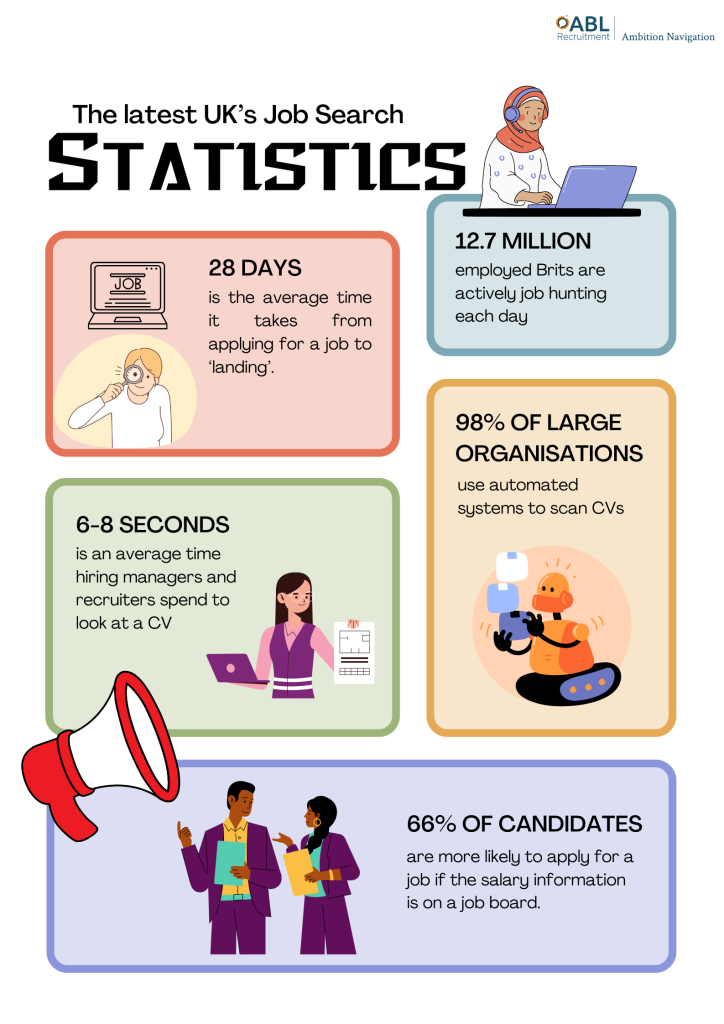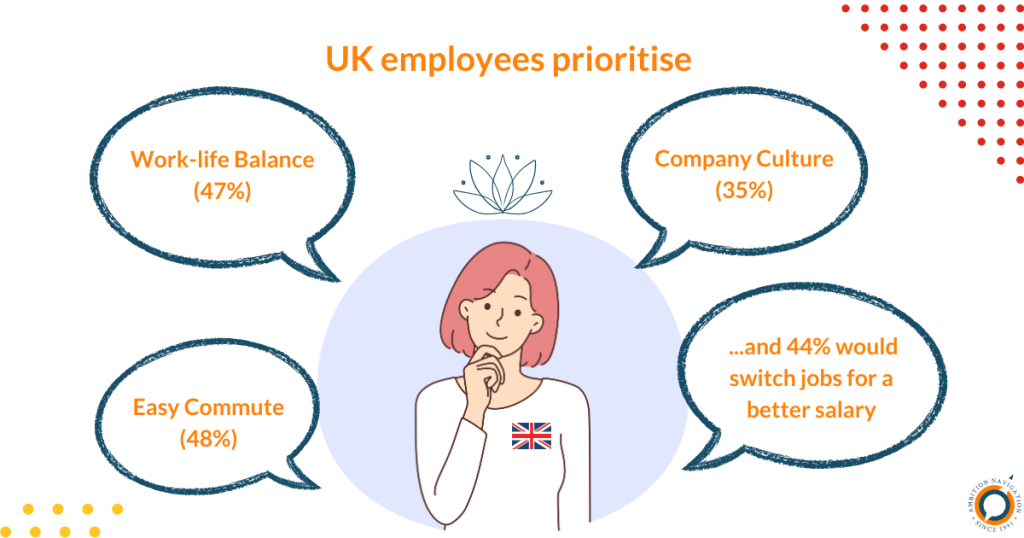
In the dynamic landscape of recruitment, recruitment practices are continuously evolving to meet the demands of a changing workforce and economic landscape. Therefore, it is essential for both job seekers and employers to stay up-to-date with the latest trends and statistics. From remote work to skills-based hiring, understanding these trends can help organizations adapt and thrive in today’s competitive talent market. As we progress through 2024, let’s examine some compelling recruitment statistics that provide insights into the current job market and hiring practices.
Global recruitment statistics

- 92% of the US employers surveyed by Monster said they were planning on hiring in 2023, a number that was consistent with the previous year (Monster)
- 44% of workers globally said that they experienced a lot of stress the previous day, repeating the record high that was recorded in 2021 (Gallup)
- 42% of employers said that employee salary expectations have increased significantly (Monster)
- 30% of new hires leave within 90 days (Forbes)
- More employers than ever before have made flexible work a permanent feature of employment, with 46% of those surveyed saying they now work flexibly compared to 21% in 2021 (Workable) and related to that, 77% of workers say they’d accept a job without visiting a physical office (Forbes)
- 24% said their employers introduced hybrid work during the pandemic and this is now a permanent strategy (Workable)
- 73% of workers said they planned on taking on additional work to increase their income (Monster)
- 45% of employees say they are feeling burned out by organisational changes in 2023 (Forbes)
- 50% of employers said that candidates need to be better at articulating their skills (Monster)
- Over ⅓ of workers say they think about quitting their jobs multiple times per week (cnbc.com)
- 20% of workers would quit their jobs if they couldn’t work from home (Forbes) while 53% of managers said that flexible work options have helped them retain their best talent.
- 31% of HR leaders feel negative about artificial intelligence (AI) in making hiring decisions (Forbes)
- Companies plan to reduce office space by 30% over the next year (Forbes)
UK recruitment statistics

In the UK, 68% of workers are full-time employed. According to a Workable study, 66% of workers consider salary and compensation as the main factors for switching jobs, a significant increase from 53% in 2021.
Or in one study conducted by FireFish Software found that the 3 most important factors, according to recruitment leaders, for UK candidates were compensation (74%), hybrid working (68%) and personal development and career progression (66%) (Firefish).
And there are more to reveal…

July-September 2020 was the largest increase in unemployment since May 2009
49% of recruiters think Brits are unrealistic with their salary expectations.
Brexit has caused an 11.4% drop in EU workers looking for UK employment.
Millennials will spend 46 months applying for jobs throughout their lives, 21 months less than Baby Boomers.

In February 2024, there were 908,000 job vacancies in the UK, a fall of 43,000 from November 2023 which sat at 865,000 vacancies.
Arts and entertainment jobs decreased by 19.8%, while real estate jobs increased by 29.1% in Feb 2024 compared to Sep-Nov 2023.
Do UK businesses still use recruitment agencies? Yes, an analysis of internal HR teams found that 59% of businesses use recruitment companies like ABL Recruitment.
62% of UK job applicants generally take 30-60 minutes to complete an application, while 38% take a max of 30 mins. Time increases if a screening test is involved.
On average, a job seeker needs to submit an average of 27 job applications to secure an interview. This may require submitting around 16 applications every week, which can take up to 6.5 hours.
64% of job seekers in the UK research a company online before applying.
98% of young job seekers prioritize fair treatment when accepting a job.
Conclusion
These statistics offer valuable insights into the evolving landscape of recruitment in the 2020s. As the job market continues to expand, staying informed about these trends and embracing innovative strategies will be key to attracting top talent, fostering diversity and inclusion, and driving organizational success.
Stay tuned for more updates and insights on the latest trends in recruitment and talent acquisition with ABL Recruitment!









